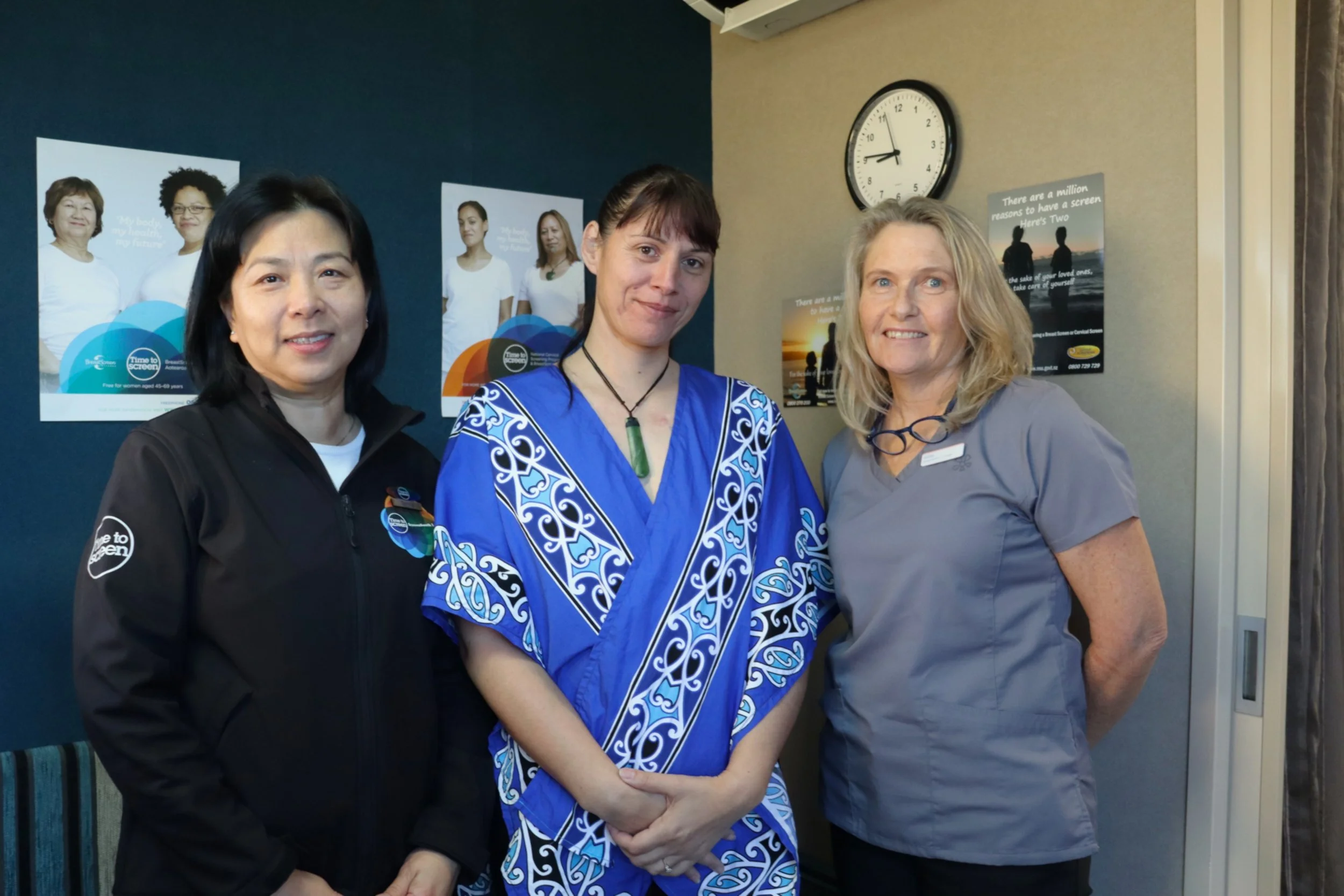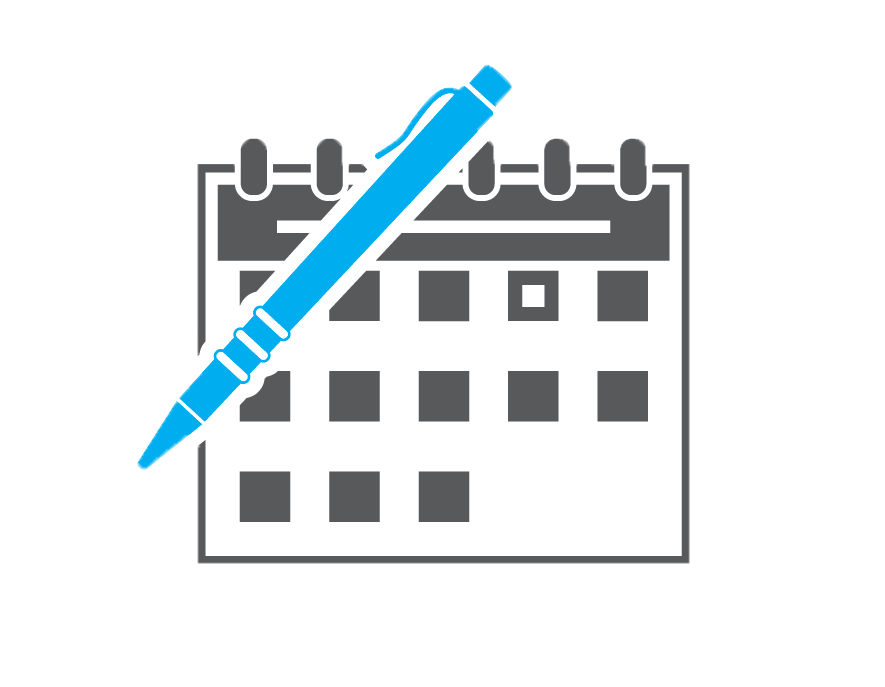A first for Wairau with the arrival of the mobile screening unit
Te Piki Oranga was pleased to offer wāhine in Wairau / Marlborough better access to breast screening services, with the Breast Screen South mobile clinic making its first visit to the region in May.
With the mobile unit based at Ūkaipō, the Rangitāne Cultural Centre, wāhine could have their screening done in a local, community setting – not just at the Radiology Department at Wairau Hospital. This was a significant step towards making screening more accessible, particularly for Māori and Pasifika wāhine, says Lorraine Staunton, Kaiwhakahaere Ratonga (Service Delivery Manager), for Te Piki Oranga.
The mobile screening unit is a large, custom-built bus equipped with advanced breast screening technology. While new to Marlborough, it is successfully used in other regions, bringing vital services closer to where people live.
A whānau-centred approach: screening with wrap-around support
The mobile unit and team travelled to Motueka next after Wairau, basing themselves at our health hub near Te Āwhina Marae.
At both Wairau and Motueka, Te Piki Oranga hosted Mana Wāhine clinics to encourage wāhine to attend their screenings in a safe, supportive environment, with access to other health services, all in one place:
• cervical screening and HPV self-testing
• immunisations
• health checks
• access to rongoā Māori practitioners
• hauora information and support
Whītiki taua... that’s us, wāhine mā!
Hauora Māori and wāhine health are priorities for many Māori and Pasifika organisations across Te Tauihu. To reflect their shared kaupapa, wāhine toa from Te Piki Oranga, Rangitāne ki Wairau, Waikawa Marae, the Māori Women’s Welfare League, Hawaiki Kura, and the Pasifika Trust came together to share a collective message of care and commitment to whānau wellbeing: Whītiki taua... that’s us, wāhine mā!’
“We are saying ‘Whītiki taua…that’s us, wāhine ma!’ as a call to action to all the māmā, nannies, sisters, aunties, cousins, and besties to check in with each other. Let’s make sure we're up to date with our breast screening,” Lorraine says.
“Let’s book our appointments and show up together, knowing that Te Piki Oranga is there to awhi you through the experience.
“Because when breast cancer is found early, it can be treated. That’s the truth. And yet, wāhine Māori and Pasifika are still more likely to be diagnosed late – and to die from this disease. That’s why it is important to do your screening every two years, even when you do not have any symptoms of breast cancer.
“It is also important to support each other to be aware about breast cancer symptoms, and to see your GP or healthcare practitioner as soon as you can when you have any concerns about your breast health.
“We’re doing this to close the equity gap. To give all our wāhine, no matter where we live or who we are, the chance to live long, healthy lives. This is about changing the stats, one wāhine at a time,” Lorraine says.
Hauora Māori and women’s health are important to many Māori and Pasifika organisations in Te Tauihu o te Waka-a-Mauī. To show how much they care, a group of wāhine toa from Te Piki Oranga, Rangitāne ki Wairau, Waikawa Marae, the Māori Women’s Welfare League, Hawaiki Kura and the Pasifika Trust collaborated for a special photo to illustrate their message to whānau: Whītiki taua... that’s us, wāhine mā!
Photo credit: David James
Breast cancer is the most common cancer affecting women in Aotearoa
Māori and Pasifika wāhine are more likely to be diagnosed at a later stage, and are more likely to experience poorer outcomes.
“When breast cancer is found early through regular screening, it’s highly treatable. But there are still too many barriers to ensure wāhine Māori and Pasifika women access screening services at the same rate as others,” Lorraine says.
In the Nelson Marlborough region, the screening rates are:
Wāhine Māori: 68.3%
Pasifika wāhine: 53.6%
Non-Māori, non-Pasifika women: 77.1%
The national target for breast screening is 70%.
Photos from Ūkaipō
Photos clockwise from the top left:
Te Piki Oranga kaimahi Donna, Kate, Tania and Kaye welcoming wāhine to Ūkaipō
Karen MacDonald recieved her mammogram at Ūkaipō, seen here with kai gift bags for participants
Kaye MacDonald is Te Piki Oranga Breast Screening Kaituitui. She is on the right next to members of the Breast Screen South team
Some of the kai offered to wāhine attending their mammography appointment.
Members of the Māori Women’s Welfare League (Marlborough branch) in support of Mana Wāhine screening clinics at Ūkaipō, the Rangitāne Cultural Centre.
Photos from Te Āwhina Marae, Motueka
Photos clockwise from the top left:
Barbara attending her mammogram appointment. In October 2024, the Whakatū / Nelson Tasman region became the first region in Aotearoa New Zealand to extend screening to 74 year old wāhine ahead of the nationwide roll-out of extended screening to 70 to 74 year-olds.
Piki Oranga kaimahi Tania Smith and Gloria Eggeling, welcoming wāhine to their screening.
Myra Upson attended her mammogram appointment and received this special cape made by the Motueka screening team.
Myra with Breast Screen South kaimahi.












